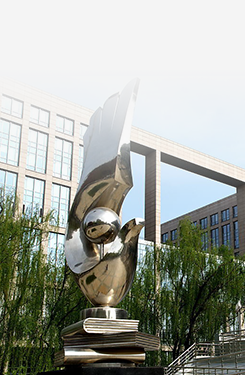Title:Decarbonization pathways for developing Asia consistent with well below 2 °C
Presenter: Zhou Wenji
Time:2018.10.12 14:00-16:00 pm
Location:A618
Invited by Prof.Fan Ying
Abstract:
Exploring potential future pathways for developing Asia’s energy consumption, CO2 emissions and infrastructure investment needs is of great importance to understand how may contribute to the global climate targets set out in the Paris Agreement. This study employs the state-of-the-art global integrated assessment model MESSAGEix-GLOBIOM to investigate mid-century decarbonization strategies for developing Asia to 2050. Our results indicate that a radical change in developing Asia’s energy portfolio is required, particularly the reduction of fossil fuel utilization, enhancement of low-carbon energy supply, and boosting of energy efficiency efforts. In scenarios consistent with the 2°C and 1.5°C targets, electricity generation and final energy consumption becomes thoroughly dominated by low-carbon energy by 2050. This transformation leads to a deep cut of CO2 emissions by 78% and 93% in the two scenarios. In terms of investment needs beyond a baseline scenario, the 2°C and 1.5°C pathways imply that a scale of low-carbon energy and energy efficiency investment needs to double and triple to 2050 relative to the baseline, respectively. These increases would be partially offset by disinvestment in coal, oil and natural gas extraction and conversion infrastructure. Decarbonization of the energy system also impacts the capital needed for making progress on other sustainable development goals, such as air pollution, clean water and food security, though these incremental changes are comparatively small.

